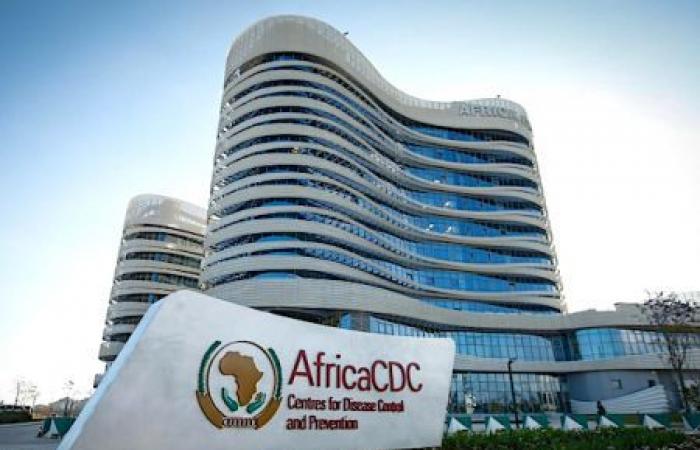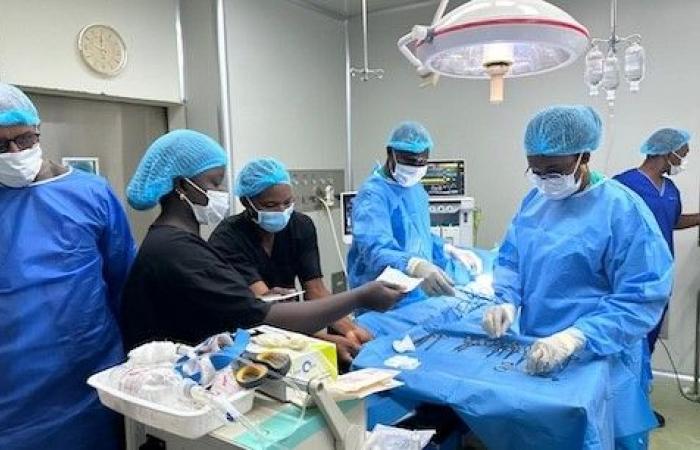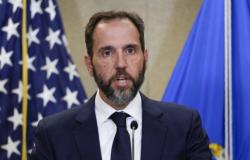(Ecofin Agency) – Africa CDC is launching a clinical study to treat mpox, while in the DRC and Rwanda, more than 50,000 people have been vaccinated. For its part, Sudan is deploying its first vaccines against malaria and in Senegal, while Guinea is hosting the 22nd CAMES aggregation competition in medical sciences…
Mpox: Africa CDC launches a large clinical study in Africa
Africa CDC (African Center for Disease Control and Prevention) announced on Thursday, November 7, 2024, the launch of a study to test the brincidofoviran antiviral currently approved for the treatment of smallpox, in the fight against Mpox in Africa. This is in partnership with PANTHER, an African pandemic preparedness platform, focused on health and response to emerging infections.
“Africa is not just responding to the mpox epidemic, we are taking the lead in finding solutions by leading the research and development of treatments for mpox”said Africa CDC Director General, Dr Jean Kaseya.
For the representative, this study is significant in more than one way. “The MpOx study in Africa represents a revolutionary step towards developing an effective treatment that will save lives. It’s not just about research: it’s about African ownership and leadership in tackling our continent’s health challenges through essential research. “, he added.
The study, which will begin in the Democratic Republic of Congo (DRC) and its neighbors, hopes to provide data on treatment options for severe cases.
Guinea hosts the CAMES aggregation competition
Guinea is hosting the 22nd aggregation competition of the African and Malagasy Council for Higher Education (CAMES). This November 4, 2024, the academic event opened in Conakry. The session, unprecedented in the country, brings together nearly 600 participants, including 356 candidates, who aspire to the rank of “associate lecturer” in disciplines such as medicine, pharmacy and veterinary medicine.
Present at the launch, Prime Minister Amadou Oury Bah highlighted the importance of this initiative to train future leaders in medicine and encouraged candidates to excel. “By hosting, for the very first time in its history, one of the most important activities of our institution, the African land of Guinea shines today in the colors of CAMES. This competition is an opportunity to showcase your skills and contribute to improving the quality of care and research in our countries”he notably indicated.
This competition, which takes place from November 4 to 12, wants to focus this year on research and innovation to improve the quality of health care in the region. Since its creation in 1968, CAMES has played a central role in promoting the development of academic life on the continent.
Sudan: deployment of the first vaccines against malaria
Sudan joins the movement by launching its first vaccines against malaria. On Monday, November 4, the Federal Ministry of Health announced the deployment of the vaccine, in partnership with UNICEF, WHO and the Global Vaccine Alliance (Gavi). The goal is to vaccinate more than 148,000 children under 12 months against the parasitic disease. After the arrival of 186,000 doses, vaccination will begin in 15 localities in Gedaref and Blue Nile states. This deployment comes in a context marked by many challenges, due to insecurity and the collapse of the health system, where national vaccination coverage has fallen to around 50%.
It is hoped that the vaccine will reduce hospitalization and mortality linked to malaria, while 3.4 million cases were estimated in the country in 2023. In 2025 and 2026, the vaccine will be introduced in 129 localities, indicates t -on.
Mpox: More than 50,000 vaccinated in the DRC and Rwanda
As of November 1, 2024, more than 50,000 people have been vaccinated against mpox in the Democratic Republic of Congo (DRC) and Rwanda, according to WHO.
“So far, more than 50,000 people have been vaccinated against mpox in the Democratic Republic of Congo and Rwanda, thanks to donations from the United States and the European Commission”indicated Dr Tedros Adhanom Ghebreyesus, Director General of the WHO, during a press conference in Geneva at the end of last week.
The WHO boss also underlined the importance of equitable access to vaccines, thanks to a distribution mechanism put in place by the WHO and its partners. Nearly 900,000 doses will be allocated to nine countries, with a total of six million doses planned by the end of 2024. However, screening remains insufficient: in the DRC, only 40 to 50% of suspected cases are tested.
Fight against polio: the African Commission calls for increased efforts in 2025
The African Regional Commission for the Certification of Polio Eradication (ARCC) is urging six countries, including the DRC and Burundi, to step up efforts to close immunity gaps in the face of persistent outbreaks. At a recent meeting at Dar es SalaamARCC members welcomed Tanzania’s progress while recalling that 23 African countries will be affected in 2024.
The ARCC highlighted the need to administer two doses of inactivated polio vaccine (IPV) to boost immunity, as many countries only administer one dose. According to the Regional Commission, a synchronized approach to vaccination campaigns and better integration of surveillance efforts are essential to prevent transmission of the virus and ensure the safety of children on the continent.
Senegal: Free surgery for 152 children at Diamniadio hospital
In Senegal, 152 children from disadvantaged families will benefit from surgical interventions at the Diamniadio children’s hospital (around thirty kilometers from the capital Dakar) by the end of the year.
In fact, from October 16 to December 31, 2024, the hospital offers these operations free of charge, as part of a pediatric surgery camp, supported by the NGO Direct Aid Society. The program includes operations in neurosurgery, pediatrics, ophthalmology and ENT, with overall funding of 30 million FCFA.
Dr Khadim Rassoul Guéye, coordinator of the pediatric surgery camp, welcomed this support and its role in improving access to care for vulnerable populations. Since 2019, more than 628 patients have benefited from these operations.
Nigeria: 875 cases of cholera and 24 deaths in Kebbi
In Nigeria, a cholera outbreak in Kebbi state (in the northwest of the country) caused the death of at least 24 people, with 875 cases recorded in ten administrative zones. Dr Abubakar Bagudu Muhammad, director of public health, attributed the outbreak to poor environmental sanitation, flooding, lack of clean water and open defecation.
In response to this crisis, the state government mobilized resources to treat victims and began training medical personnel to prevent future outbreaks. The operation benefits from the support of agencies such as the WHO and UNICEF, which notably carry out awareness-raising efforts, in collaboration with traditional and religious leaders, in order to inform the population on the preventive measures to adopt in the face of this threat. increasing health.
Ayi Renaud Dossavi
Read also
Guinea, Ivory Coast, Morocco, Africa fights against mpox: weekly health update
14 African countries will support WHO Africa; the fight continues against mpox: the weekly health update







